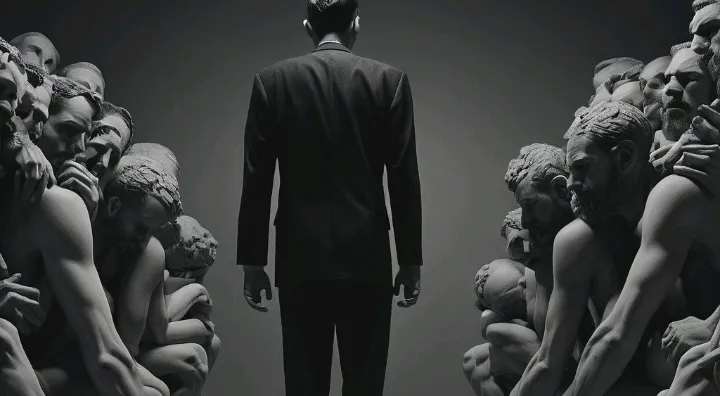Title: "Embracing the Paradox: Nihilism versus Existentialism."
Imagine what if Life Turns Out to Be Pointless?Have you ever questioned something in your life deeply? Maybe you've delved into the existence of God or thought about the concept that maybe we're all just figments of someone's imagination or dream.They say eternalism is cowardly in clinging to illusory meanings, but then nihilism is also cowardly in clinging to illusory meaninglessness.If we survived the process of destroying all interpretations of the world, we could then perhaps discover the correct course for humankind.Human existence is not anchored in a prescribed purpose and is instead considered chaotic.
Introduction:
In a world filled with uncertainty and chaos, many of us grapple with the question of whether life has any inherent meaning or purpose. Existential Nihilism. While nihilism is often discussed in terms of extreme skepticism and relativism, for most of the 20th century it has been associated with the belief that life is meaningless. Existential nihilism begins with the notion that the world is without meaning or purpose.
Nihilism and existentialism offer two contrasting perspectives on this existential dilemma. While nihilism asserts that all values are baseless and life is ultimately meaningless, existentialism argues that we are responsible for creating our own purpose and meaning.
In this blog post, we will explore the nuances of these philosophical beliefs and delve into the implications they have on our lives.Through this write-up let's try to explore the philosophical beliefs of nihilism and existentialism and discover how to navigate the complexities of life with a sense of purpose and meaning in the face of existential uncertainty.
The Liberation of Nihilism:
Nihilism, often misunderstood as a bleak and pessimistic worldview, can actually be a liberating stance. By acknowledging the inherent meaninglessness of life, we are free to embrace the passage of time and find joy in the present moment. The acceptance of both meaninglessness and meaningfulness allows us to navigate the complexities of existence without being weighed down by despair. As the Buddha himself was accused of being a nihilist,...
Introduction:
In a world filled with uncertainty and chaos, many of us grapple with the question of whether life has any inherent meaning or purpose. Existential Nihilism. While nihilism is often discussed in terms of extreme skepticism and relativism, for most of the 20th century it has been associated with the belief that life is meaningless. Existential nihilism begins with the notion that the world is without meaning or purpose.
Nihilism and existentialism offer two contrasting perspectives on this existential dilemma. While nihilism asserts that all values are baseless and life is ultimately meaningless, existentialism argues that we are responsible for creating our own purpose and meaning.
In this blog post, we will explore the nuances of these philosophical beliefs and delve into the implications they have on our lives.Through this write-up let's try to explore the philosophical beliefs of nihilism and existentialism and discover how to navigate the complexities of life with a sense of purpose and meaning in the face of existential uncertainty.
The Liberation of Nihilism:
Nihilism, often misunderstood as a bleak and pessimistic worldview, can actually be a liberating stance. By acknowledging the inherent meaninglessness of life, we are free to embrace the passage of time and find joy in the present moment. The acceptance of both meaninglessness and meaningfulness allows us to navigate the complexities of existence without being weighed down by despair. As the Buddha himself was accused of being a nihilist,...





